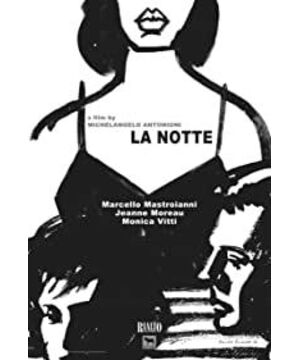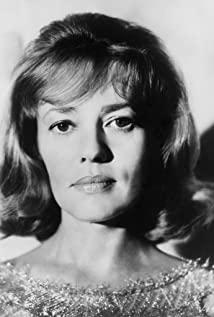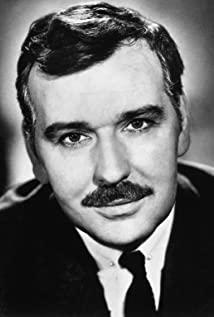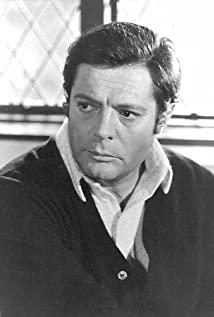"This morning,
I woke up and you are still sleeping.
I heard your quiet breathing,
through the strands of hair cover your face,
see your eyes,
strong feelings that I can not breathe.
Through On your face,
I saw a pure and beautiful illusion.
You and me reflected from another angle
contain my life.
I see the river of time
flowing with the rest of our lives that we will spend together.
There are also those that have
never been. known you,
for the days of your acquaintance.
at that moment,
I realized that I was so in love with you.
this feeling is so strong,
let tears to my eyes. "
taken on the 60th anniversary of the Cannes Angelopoulos three In the minute commemoration short film, the old Jeanne Moreau sadly called Marcelo's name, and once again fondly chanted the ending line in the film "Night". In this way, I miss Marcelo Mastroianni, who has already left first, and miss this classic that spans time and the affection that has been engraved on the path of the movie.
Not everyone can appreciate the passion and enthusiasm that once burned under the cold and lonely appearance of the film "Night". Only those who have experienced despair and helplessness in their lives, and have experienced the illusion of the real world as if they were dead, will see the mirror image of their spiritual world in this film and discover every aspect of it. Every minute is surprisingly accurate.
About Michelangelo Antonioni
Michelangelo Antonioni, recognized as one of the most influential directors in modern film aesthetics, was born in Ferrara in central Italy in 1912. Before the age of 20, he was fascinated by architectural models and later fascinated by theater. Also tried to make a documentary about the mental hospital. In the 1940s, he started shooting various short films and documentaries. In the 1950s, he filmed his debut "Love Story". From then on, he gradually deviated from the popular neo-realism path and started his inner realistic "inner film" and even "anti-movie" "The road of creation.
For Michelangelo Antonioni, his works (especially those after the 1960s) are difficult to define which one should be called the "most classic" and which one is the "second classic". After the formation of his style, the "Trilogy of Love" ("Adventure", "Night" and "Eclipse") and the following "Red Desert", "Zoom", "Zabriski Cape" and "Days on the Clouds", each The film can be regarded as a stunning classic under his aesthetics. So writing his "sub-classic" film is actually just choosing the one that got me the most shot to share with others.
In 1961, Antonioni, who was filming the second part of the trilogy, "Night", had already won the Jury Prize at the Cannes Film Festival from the first year's "Adventure". According to his queen heroine Monica Witty, when the filming of "Adventure" was completed and sent to Cannes for screening, many people snickered and booed. Witty couldn't help crying after the screening. Soon after that day, she and Antonioni saw a statement in the lobby of the hotel. There was a long list on it, signed by some important directors, film critics, fans, and reporters. The content of the statement read: "Yesterday, we read "Adventure", this is the best film at this festival." So Antonioni’s aesthetic style has been recognized when he filmed "Night", and since then, Antonioni’s name has been His cold brushstrokes are engraved in a prominent position in the movie history corridor.
Antonioni has two wives in total. He was accompanied by his ex-wife Letizia Balboni when he was filming "Night". Their marriage lasted for 12 years, surpassing Antonioni’s best creative era. Balboni later said when talking about the reasons for the divorce: "We are completely Living in silence, we have reached the point where the only communication with each other is that he needs me to advise on the character he created."
Antonioni's silence and coldness are his character and his movie. In all the film creations of his life, he has been thinking about and deeply expounding a core: "We know that behind the revealed image, there is another intention to be more faithful to the truth, and after that, there is another, layer by layer. Package. But the absolute, mysterious reality, the true imagery is something no one can see. In the future, it may come to a point where every image and reality will collapse. Abstract movies therefore have their own reasons."
Non-existent stories and truths
Trying to use words to logically tell the plot of Antonioni’s movies is almost meaningless. Because his film is like a huge tower gathered by grains of sand, every scene, every composition, every look, every movement in the film is like the breath of the movie, smooth and natural in one breath and one breath. The life that constitutes the whole of the film. I can't help but wince: How can I describe the hot lava underneath his marble surface.
In the movie "Night", the attempt to get close to his story is also as difficult as peeling an onion. The protagonist Giovanni Pontallo (Maslow Mastroianni) is a successful writer. His wife Lydia (Janna Moreau) has been married to him for nearly ten years. At the beginning of the film, the husband and wife went to the hospital to visit their friend Tommaso. On the surface, they greeted each other with relief and even drank champagne. In fact Tommaso has been alive soon, and compared to Puntaro, who cares about his friend’s illness. Interested in Tommaso's praise for his new book, his wife Lydia tried to escape from the ward every minute. However, the real story is still not what we saw or even guessed. Lydia escaped from the ward under the pretext and leaned quietly downstairs in the hospital to weep. Go to bed. Now the couple themselves and their relationship is like a strange mystery. Puntaro told his wife the truth about the seduction incident that just happened in the car, and the wife only responded indifferently, as if he had listened to a trivial story, without a trace of jealousy or anger. Then, when Puntaro attended his new book conference, Lydia left the crowd and started wandering aimlessly in the streets. Antonioni used his way to observe Lydia, a bystander who was lost in the urban space. He used the sights and crowds that Lydia saw to express that modern people in the urban space wanted to escape this world of appearance. All kinds of impulses and trances. Lydia unknowingly returned to the place where she and her husband lived when she was just married and fell into poverty, where she unconsciously prevented the young men from fighting and fled in panic, watching the little rocket launched by the boys disappear into the depths of the sky ...Later we learned that the unfamiliar space in these urban ruins makes people feel uncomfortable, because there are memories of her living here with Puntaro. All moving is no longer moving, all erotic desires are dissipated into pieces and scattered in unpredictable loneliness. We can clearly see that from the very beginning, Antonioni had no intention of introducing the audience into the story step by step.
Finally, the night in the film has arrived. Under the cover of night, those fissures that were tense strongly in the day began to fall and shake to reveal their new faces. Puntaro followed his wife's wishes and took her to the bar to watch an acrobatic performance by black dancers and strippers. He seemed to have a vulgar and undisciplined interest in this strongly sexually suggestive performance, which seemed a little different. Lydia looked at her husband with her idle curiosity, like the shadow of a stranger. At night, the people gathered on the big lawn of Gladini's house looked so abrupt and noisy, out of step with the natural night. These people seem to be regular and innocent. They are very happy to have defensive or decorative personalities under the cover of night to communicate with the people around them, carefully feeling like an invisible lunatic asylum. In this collective unconscious mask party, Lydia saw for the first time Valentina (Monica Witty), the daughter of the Gradini family, who was hiding to read a book. And when Puntaro met Valentina for the first time, she was playing a game similar to curling: a hard block stopped on the last line of a smooth floor and scored (just like the rules of people's life in the daytime). Soon, Puntaro was attracted to Valentina and started playing happily with her. At the same time, Lydia received the news of Tommaso's death, and she watched with expressionlessly Puntaro kissing Valentina under her nose.
The climax of the film is a sudden heavy rain and a sudden blackout. The adults at these parties reveled like children who had escaped the supervision of the kindergarten teachers, washed away the shadows of the constricted space in the complete blessing of the night, and allowed their bodies to blend into the nature of this rainy night, indulging in the fermentation of the spirit of Dionysus. . Taking advantage of this opportunity, Puntaro went to find Valentina to confess, and Lydia was taken away by a male guest. The dark indoors in the rain and the outdoor rain scenes shining with silver light are simply beautiful and unreal, as if the cold and hard shells will loosen in such a dreamy space. However, the derailment of the couple ended in vain. The illumination of the city lights seemed to make them fear that the ridiculous picture of herself was illuminated, but the difference was that Lydia took the initiative to give up the intimacy with the strange man, and Peng Talow was rejected by Valentina.
Speaking of Valentina, her careless self-entertainment is like an endorsement of Antonio Niben's temperament in the film. This false world full of lonely souls is more like a game for her. The pleasure of living lies in discovering the truth about the rules of the game and scoring points in the game. She can detect the weakness of people without exception and accept her own weakness. As she said in her own chattering recording: "I don't want to listen to useless sounds. I want to choose them. I would rather not listen to too many words, but you must make yourself compliant with the waves drifting on the sea." When Puntaro didn't understand that she wanted to listen to it again, she easily washed out the fragments that she had grabbed in her mind. In Valentina's view, those seemingly tangible objects and sensible selves are composed of moments of escape from each other. She neither believes that men's emotions and power are interesting and meaningful things, nor does she need to establish her status in a way that worships men. Compared with the love between men and women, the natural intimacy between women’s hearts is more real and more precious. Therefore, Valentina and Lydia are not separated by Puntaro at all. The depth of the distance between the two women is touched by a few words. I've had Puntaro all night with self-righteous boasting. Even a "successful" intellectual male representative like Puntaro, who is "selfish and sympathetic", still can't get rid of the chatlessness and incomplete and closed self-awareness of men's stupid pursuit. Antonioni's flogging of men has never been. Is not merciless. Even though the world in the eyes of Valentina and Lydia at this time is just a barren desert of human nature, they are still observing the various laws of reality that have been given "names" and devoting themselves to emotions. Valentina said: "When we try to convey love, love disappears." She knew that love had escaped her, and she understood why. But Antonioni remained silent about these reasons and the truth of the story, and he asked the audience to taste and realize by themselves.
At the end of the night, the love hanging in the air
"I often think of the absurdity of our emotional and psychological situation. What's more, building and living in these houses absurdly, this kind of love is like hanging in the air and huge (and what What about?) in the sphere." Antonioni mentioned his film "Night" in his notebook novel "A Director's Story".
Gladini's night is over, and so is the night. At dawn, the tired people were forced to face their broken lives again, and some were crying bitterly. The couple who got nothing in their respective "derailments" walked on the private golf course of Gladini's home. Lydia told Puntaro Tomaso's death and confessed to her own dead heart. As stated in the lines quoted at the beginning, at the end of the film, Puntaro was impatient, puzzled, and somewhat surprised to hear his wife read this very beautiful love letter. After the wife wiped two tears off her cheeks after reading, Giovanni asked her who wrote it. The wife said: It's you. Puntaro was instantly defeated by himself. "It turns out that in my unconsciousness I have forgotten that I love you. I don't know that I ever loved you so much. I don't know. If I knew that it was me, I would love you again." Puntaro may be Thinking like this, he kissed his wife madly, like kissing the dead self who loved, passionately and hopefully. He kept repeating "I love you", but Lydia kept mumbling to confirm this accomplished Fact: "I don't love you anymore, and you don't love me anymore."
Our love will die, just as the body will die. Even the ego exists only for a moment in the time-space relationship. Not only do we break each other, we also break with the ego. True love is only a moment, and that moment leads directly to eternity in thickness, but when that moment passes, what we hold in our hands is just the corpse of love. The corpse of love slowly decayed over time, and the last thing that can be remembered in my heart is the loss of love like Tommaso who has gained nothing. Everything we can get will inevitably turn into a pool of stagnant water, not as good as the emotion that strangles the illusion before getting it. When Lydia mourned the latter many years later, she realized the true taste of Tommaso's love, and Tommaso's love became immortal and eternal due to his failure and death. But even if all the passions and passions of love will turn into a pool of stagnant water, we are still unable to resist being involved in it, obeying it to decay and degenerate, and in the process of resisting decay as much as possible, we will smear ourselves and our emotions more and more. The thicker it is, until it is as dignified and cold as a mummy, as if this is the true knowledge of irreversible life.
Antonioni chose to use such a cold, free, and anti-narrative method to show this "non-story" film, not because he lacked passion for the characters in the play, lacked passion for the story, and deliberately created a so-called "distance" "Effect. And it is precisely because he is so honest and serious, and he is full of worries about the story and his characters, that can realize the urban space faced by modern people's passion and explosive power-so indifferent and absurd, full of mysterious extensions, Extending to a certain place deep in the universe is missing. He also discovered that in a closed story with ups and downs with beginnings and ends, he couldn't let go of so many meanings that he wanted to express, the meanings that are as deep as the desolation of human nature and as high as the myth of the universe. The inherent fiction of the story makes people feel nothing in entertainment and excitement, because everything they are uncertain about and everything they want to feel is locked in a closed story. But what Antonioni wants to talk about is the no ownership of man, the rootlessness of the universe, the impermanence of thinking, everything that seems to come and go meet and know, but in fact they are just parallel lines that do not intersect each other.
"Night" is not a tragic story in the traditional sense, it is nothing more than telling a couple who seem to be close together, two unsuccessful derailments. But its tragedies are everywhere. It is a kind of alienation and strangeness permeating all the characters, things and scenery, which is depressing but powerless to tell. In Antonioni's film, people are like trees, trees are like walls, walls are like broken rubble, and rubble is like clocks in ruins... Everything in the film has been stripped of them again. The "names" given by us become themselves again: they are just those undifferentiated individuals in front of the camera, all kinds of isolated lives. These grains of sand piled up in Antonioni's movies, each of them is dissolving the cohesion of the human society based on communication.
Antonioni is not a director, nor is he making a movie. He is using the lens and his tyranny of time and space to write a long poem about the death of modern people. "Who is the third who walks always beside you?" Antonioni asked through his lens and answered with his lens. The undercurrents beneath the surface of modern people in "Night" are quickly dissipating. Those old passions and enthusiasm shrouded the heart like a gloom, like a sad gaze, reflecting on the dissipating body and the soul that no longer has the heat. Nothing can stop us from the moment we fall in love with each other from the moment we start to drift away until we are invisible and inaudible to each other, only the nostalgia for the violent colors of the past and helpless weeping.
Originally published in "Global Screen" Issue 301 Joe Wine
View more about La Notte reviews











